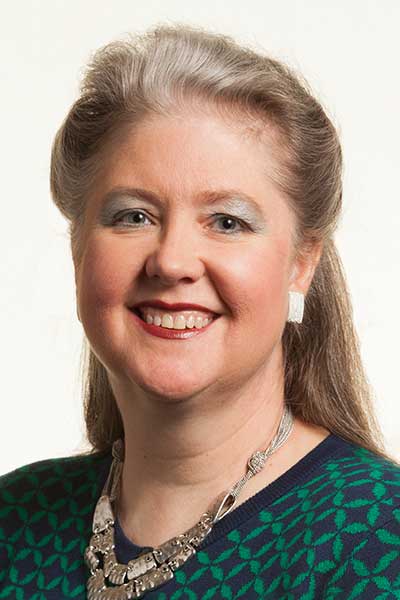Rheumatology continues to advance at the speed of research, and the advent of single-cell sequencing, high-throughput analytical methods, and other next-generation tools is moving research faster than ever. The annual Year in Review at ACR Convergence summarizes the most important and insightful advances in clinical and basic science.

“During the past year, there have been new data that are changing the ways we practice, as well as some intriguing early clinical trials of novel approaches that may have future impact,” said Carol Langford, MD, MHS, the Harold C. Schott Endowed Chair in Rheumatic and Immunologic Diseases and Director of the Center for Vasculitis Care and Research at Cleveland Clinic. “Recently published information has provided insights on the treatment approach to rheumatoid arthritis, lupus, spondyloarthritis, and myositis.”
Dr. Langford will open the one-hour session at 10 a.m. ET on Saturday, November 12, with a review of advancements in clinical science. Meeting participants have the option to attend the Year in Review in person in Ballroom AB of the Pennsylvania Convention Center or on the meeting website via livestream, or to view the session on demand.
“We are seeing new data on low-dose prednisone, the oldest immunosuppressive therapy we have and still one of the most challenging in terms of weighing potential toxicity,” Dr. Langford said. “In gout, recent studies demonstrated ways to reduce pegloticase immunogenicity that raise risk/benefit questions of immunosuppression that are new for this disease.”
The past year also saw the introduction of pre-exposure prophylaxis with tixagevimab and cilgavimab to significantly reduce the likelihood and severity of COVID-19, as well as new U.S. Food and Drug Administration approvals for psoriatic arthritis and ankylosing spondylitis and the first approval of an allosteric inhibitor of tyrosine kinase 2 (TYK2) in psoriasis.
“These approvals, together with promising early phase studies of novel agents in a range of rheumatic diseases, provide clear links for how what we are learning in the lab can ultimately impact clinical practice,” Dr. Langford said.
Basic science is similarly linked to clinical practice. Rheumatologists have long recognized genetic risk as a factor in many rheumatic diseases. Basic research is now uncovering the mechanisms linking genetic variation and clinical disease.

“A child with severe lupus due to a gain-of-function mutation of the IRF7 (interferon regulatory factor 7) gene delineates how that one mutation can cause clinical disease,” said John Varga, MD, the Frederick GL Huetwell Professor of Rheumatology and Professor and Chief of Rheumatology at the University of Michigan Medical School. “Several new studies highlight ways in which changes in mitochondria and cellular metabolism can cause rheumatic disease. Many rheumatology investigators focused on immunology, myself included, are relearning their biochemistry and trying to get back into metabolism.”
Dr. Varga will summarize some of the most exciting emerging basic science topics. Not all are unexpected, he noted. Single-cell RNA sequencing and other high-throughput technologies are bringing advances in the understanding and targeting of molecular mechanisms of immune responses that were unimaginable a decade ago.
There is now evidence that older people with higher levels of clonal hematopoiesis of indeterminate potential (CHIP) have an increased risk of gout.
“Mouse models suggest that perhaps we should be measuring CHIP as a risk factor for gout,” Dr. Varga said. “Another mouse study described an experimental vaccine against fibrotic cells that appears to prevent and cure fibrosis in the liver, lungs, and other organs. I’m not sure which of these will stand the test of time, but they are the kinds of ideas that can inspire novel thinking and lead to novel treatments in the future.”

Registered ACR Convergence 2024 Participants:
Watch the Replay
Select ACR Convergence 2024 scientific sessions are available to registered participants for on-demand viewing through October 10, 2025. Log in to the meeting website to continue your ACR Convergence experience.
